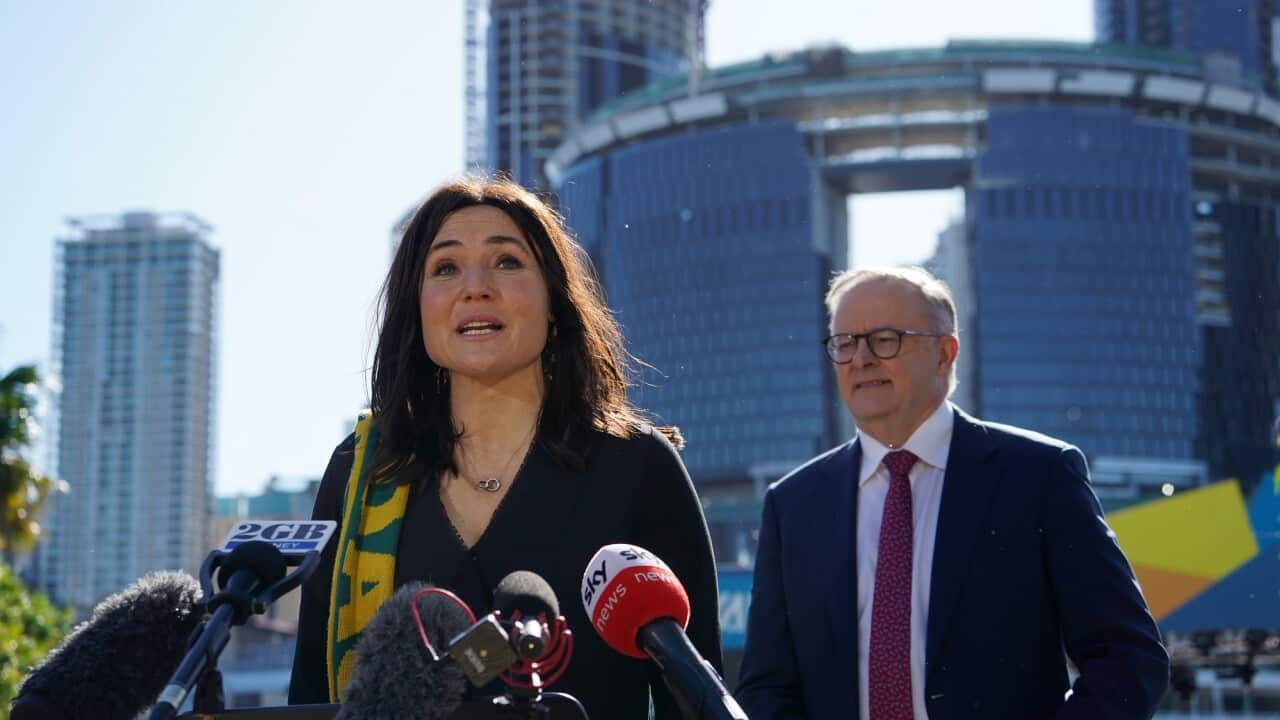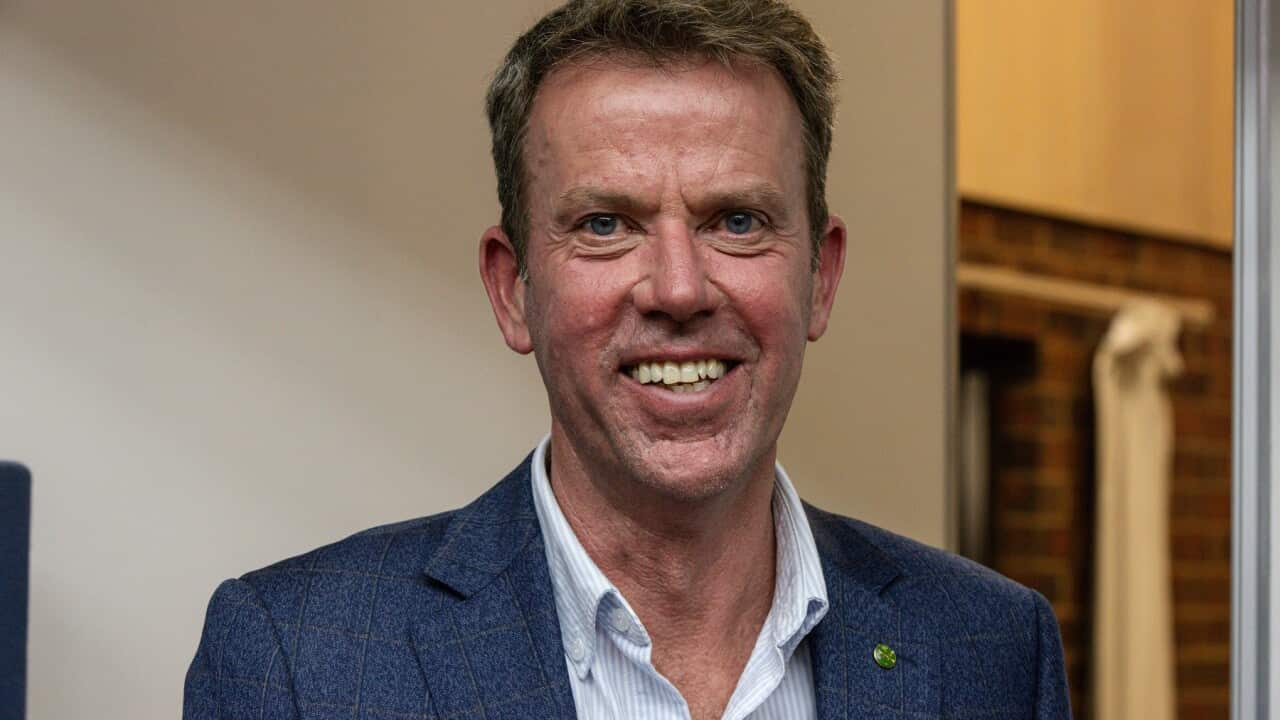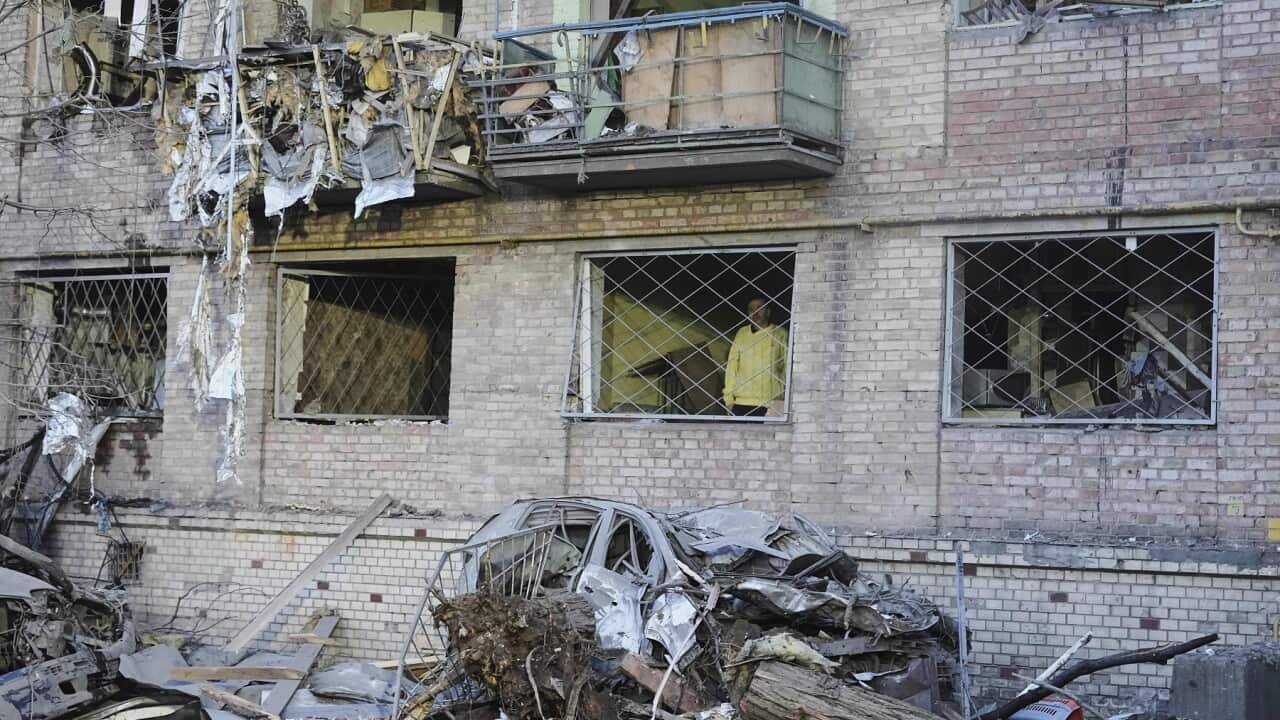TRANSCRIPT
Matildas captain Sam Kerr says the greatest legacy of the Women's World Cup should be more financial support for female sports.
The beginning of that legacy has come from the federal government, pledging 200-million-dollars for women’s sporting facilities and equipment.
Prime Minister Anthony Albanese says the Play Our Way program is one of the largest funding commitments to women's sport.
"This is about making sure that the next generation of Sam Kerrs and Mackenzie Arnold get - not just applause as McKenzie and Sam have - but they get the infrastructure and facilities that they need.
"We're going to see an explosion in participation in sport. And that is why this $200 million will make a difference. To not just recognise that this has been a moment of national inspiration, but to seize the opportunity for the next generation coming up."
An expert panel has been pointed to help design the program and inform the guidelines for sports grants.
The panel includes: former Matildas captain Tal Karp, basketball legend Lauren Jackson, netball icon Liz Ellis, and Paralympic gold medallist Madison de Rozario.
Karp says she will be taking her role very seriously.
"(The) process is really important here. To make sure we hear diverse perspectives. That we’re taking into account the evidence needed to make sure that we are matching resources where the need is at its greatest. So we won't pre-empt the process. Just be assured that this is really, really important."
That lived experience from panel members is being welcomed by bodies promoting greater female sports participation, including Gaining Ground WA.
The non-profit runs a mentoring program targeted at young players to reduce the dropout rate among girls aged 10 to 16.
Founder Kris Marano says it is hoped those issues and perspectives are reflected in the Play Our Way program.
"It's really, really important. I think especially women who have been coming up in sport for so many years. What is happening with the Matildas now and what they have created is everything that they would have hoped they had over the years - that they have tried to implement - and maybe the timing wasn't right.
"I think someone like Tal Karp, she is talking about social change and the need to see people as human beings, so I feel really great about that leadership. And I also hope - and we will see what happens - that there will be some younger girls and women who will ask to be part of panel - or at least engaged. To have the opportunity to be asked what do you actually need - and to have that actually listened to and implemented will be key to all of this."
Football Australia says it is anticipating a 20 per cent increase in grassroots participation after the Women's World Cup.
Marano says making that participation sustainable will require a look at mental health issues and creating welcoming spaces.
"It is really about the support, how we show up for each other, how we communicate, encouraging communication to the younger girls. Right now we see a lot of traditional communication within clubs is tougher. Like 'why are you kicking like that' 'why are you doing that?'
"Even in the physical body language, it might be a coach throwing arms down. So we need more training and tools and resources around that - so that women and girls feel like they belong within their team."
Advocacy group Women Onside has been pushing for greater female representation on the boards of football governance bodies and football clubs.
The chairperson of the national network, Kerry Harris, says the funding of $200 million is a good starting point - but there will need to be more investment.
"I imagine that there are going to many, many people interested in that grants program. So $200 million sounds like a lot, but if you diluted that over many, many organisations than that amount gets smaller and smaller each time. If we think about the various investments that have happened around stadiums...
"The announcement by the Victorian government of $380 million compensation for not hosting the Commonwealth Games. Then we believe it is just the beginning. And it ought to be the foundational start of some really serious investment into women's football - and women's sport more broadly."
The Matildas effect may drive football participation higher, but their impact is being felt across codes.
Former Australian cricketer Michelle Gozko says she looks forward to seeing the impact of the funding on cricket.
"It's been a long time coming. Everyone's jumped on the bandwagon of the Matildas but women have been playing sport at a high level for a very long time; and its about time some money got put into grassroots and just trying to equalise the playing field. It's been amazing, and I can't wait to see what transpires in the next few years."
Cassie Watson is among the girls coached by Gozko. The 15-year-old says she is relishing seeing the Matilda's time in the spotlight.
"I feel like usually there's no interest in women's sport at all, it's mainly about the men. But now everything is changing. (I would like to see) ... more female coaches and more equipment would be great."
The government announcement also includes a commitment to develop legislation in coming months to prioritise free-to-air TV broadcasting of significant sport events, before online streaming services enter the picture.
It's been welcomed by some professional codes like Netball Australia, but there are concerns from others.
Danny Townsend is the CEO of the Australian Professional Leagues, the governing body for the A-League Men, A-League Women, A-League Youth and E-League competitions.
"We also need to keep an eye on the development pathway for those women to ensure that they have the opportunity in the future to become professional athletes in whatever field they choose.
"Obviously for us, we would like to see and ensure that the Matildas remain competitive on the world stage for the medium and long-term. And I think that is something that needs to be considered when we're really funding sport at all levels."
Women Sport Australia runs a mentoring program to support females in their early- to mid-stage of their careers in sport, sports administration and sports media.
Board director Jessica Ivers says after decades of underinvestment, there is hope this signals more to come.
"It's definitely a good start. I think it’s a really great show of leadership and commitment from the government that they have said they will commit this amount of money. And hopefully this then starts that snowball effect of being able to commit more money in the future from state and local governments."













